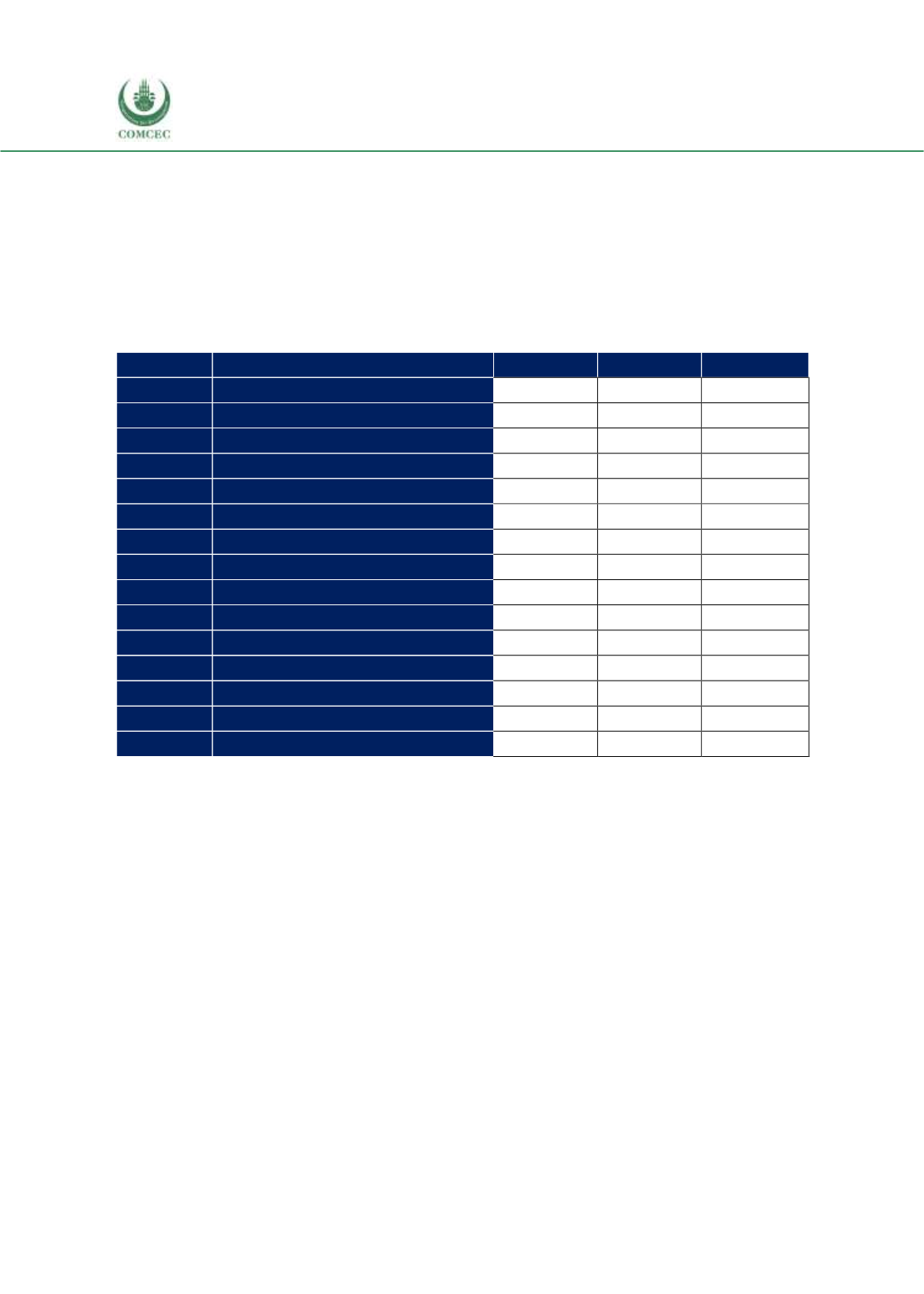

Reviewing Agricultural Trade Policies
To Promote Intra-OIC Agricultural Trade
120
The Gambia has preferential trade agreements with many non-OIC countries, such as US,
European Union, Russia, Canada as well as other non-EU European countries under generalized
system of preferences and with many countries in Asia under LDC-specific measures (WTO, PTA
database). The regional trade agreement in force that The Gambia is part of is ECOWAS. An early
announcement is made for The EU-West Africa Economic Partnership Agreement and yet to be
signed. The Gambia has bilateral trade agreements with Ethiopia (signed in 2012) and Tunisia
(signed in 2000). The only OIC countries that can export to The Gambia under preferential tariffs
belong to the African group (Table 4.36).
Table 4. 35 NTM Coverage and Frequency Ratios in Agricultural Products, Gambia
Code
Sector
CR
FR
Count
A
Animal
99.7
90.6
87
B
Animal
99.7
85.4
82
I
Animal
1.9
29.2
28
P
Animal
40.1
70.8
34
A
Vegetable
83.1
81.3
148
B
Vegetable
83.1
81.9
149
I
Vegetable
0.0
1.7
3
P
Vegetable
0.4
1.9
1
A
Food Products
90.7
81.8
117
B
Food Products
25.8
74.8
107
E
Food Products
15.4
16.1
23
F
Food Products
15.4
16.1
23
I
Food Products
0.9
8.4
12
P
Food Products
2.2
9.6
5
B
Hides and Skins
0.1
3.2
1
Source: WITS
Note: A: Sanitary and phytosanitary measures, B: Technical barriers to trade, C: Pre-shipment inspection
and other formalities, F: Charges, taxes and other para-tariff measures, G: Finance Measures, P: Export
related measures
4.3.3. Stakeholder Perceptions in the Gambia
Ministry of Agriculture, Ministry of Trade, Industry, Regional Integration and Employment and
Ministry of Fisheries, Water Resources and National Assembly Matters are the three major
Government agencies directly responsible for the design and implementation of policies related
to agriculture. During the visit to The Gambia, the research team conducted key informant
interviews with high level officers from these three Ministries. Additionally, interviews were
conducted with officers from the Gambia Chamber of Commerce and Industry (GCCI), Gambia
Investment and Export Promotion Agency (GIEPA), The Gambia Agricultural Teachers
Association and Turkish Cooperation and Coordination Agency (TIKA). In order to understand
the viewpoints of the private sector, additional interviews were conducted with one exporter
from the private sector and with the manager of the Gambia Horticultural Enterprises.


















